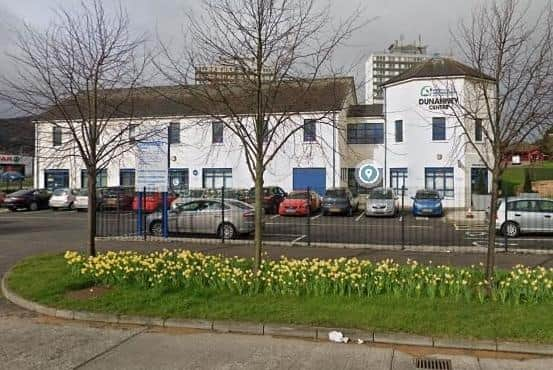Stark reality of Newtownabbey teens’ mental health
and live on Freeview channel 276
Speaking at a meeting of the board on Thursday, Ciara McKillop, assistant director of Child Health, Development and Emotional Health and Well-being Services, told members that one in eight children and young people in the Northern Trust area has an emotional disorder such as anxiety or depression which is 25 per cent higher than in England.
One in six children and young people in the Northern Trust has an eating disorder.
Advertisement
Hide AdAdvertisement
Hide AdIn July, there were 689 children on the waiting list with the Trust receiving referrals at a rate of 112 per month.


Peak times for referral, she noted, are in September, November, when some schools hold parent-teacher meetings and during “exam season” in May.
She noted a “majority” of referrals from the Antrim and Newtownabbey area.
She said that the Trust and other bodies are continuing to provide funding to the Thrive project, based at the Dunanney Centre, in Rathcoole which works with six primary schools and one post-primary school in “one of the highest areas” of referral.
Advertisement
Hide AdAdvertisement
Hide AdCommenting on the work of Thrive, co-ordinator Claire Humphrey said: “Thrive is a collaboration of parents, churches, schools, community groups, voluntary and statutory organisations working to help children and young people thrive. It is a key priority for all of us to strengthen the well-being of children, young people and families.
“We are very aware that children and young people are facing many challenges, including the impact of the pandemic and living in economic uncertainty, and this affects their mental health. We also know that children and young people are hugely resilient and that parents want to support their well-being. Everyone is pulling together to support mental health. Schools in the area are providing interventions such as schools’ counselling to build social and emotional resilience. Thrive supports school staff who are working directly with children facing mental health challenges to link more effectively with health professionals.
“Last year, Thrive provided training for teachers and community workers in Community Resilience, Lego therapy training and Lifeskills. Family Connections offers family support and parenting programmes such as Incredible Years. Thrive’s ambition is that through collaborating effectively we can get children and young people access to the mental health support they need and create loads of opportunities for them to thrive. We want to work with the Northern Trust and others to get help early before mental health issues become serious.”
Meanwhile, the assistant director has indicated that the Trust’s mental health services team has lost six “very experienced” staff members through retirement and promotion during the last 18 months. She commented that the staff situation is “mirrored in otherTrusts”.
Trust board chair Bob McCann said: “It is a hugely challenging area of work. The Trust has acquitted itself under very difficult circumstances. The staff issue is now almost universal.”